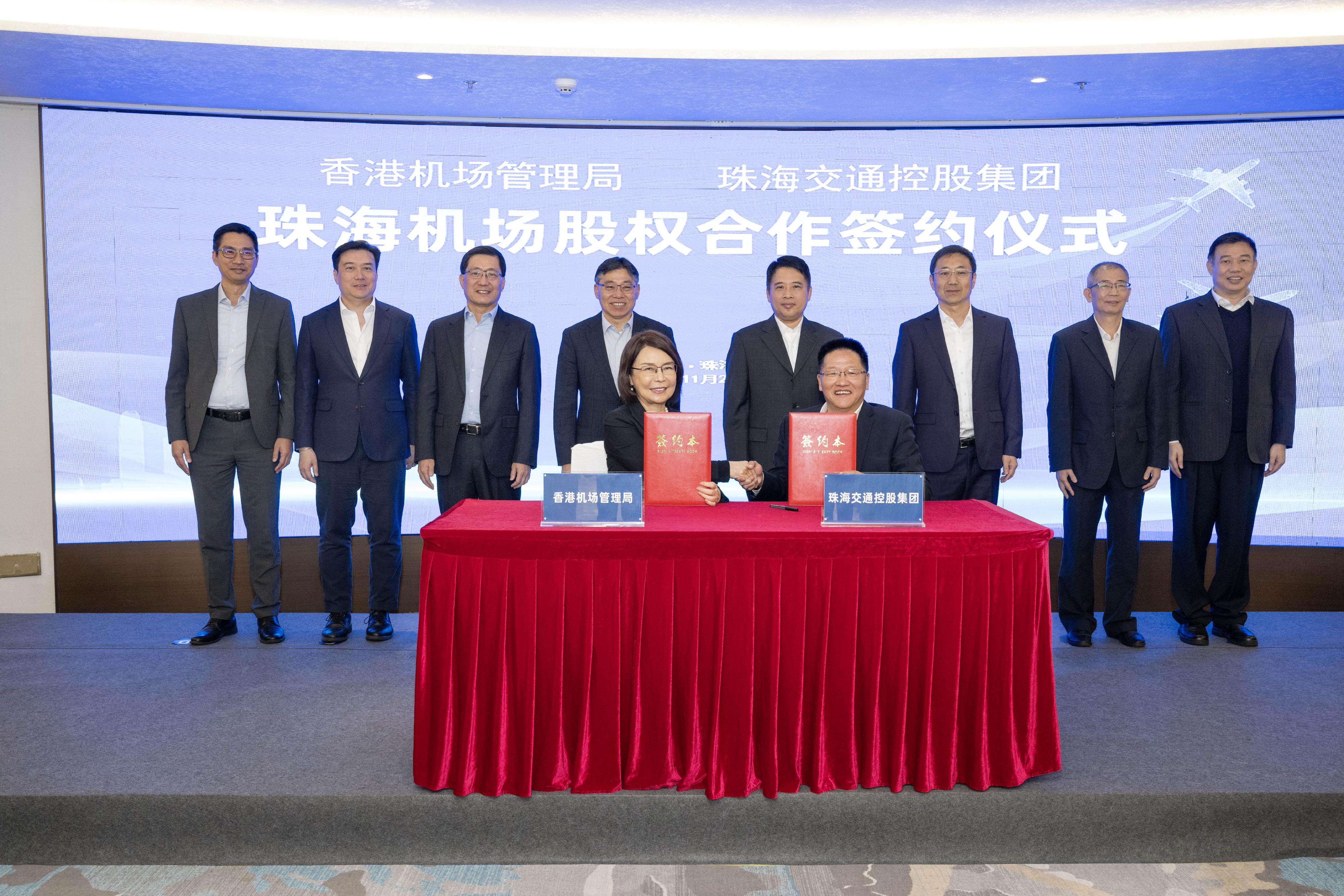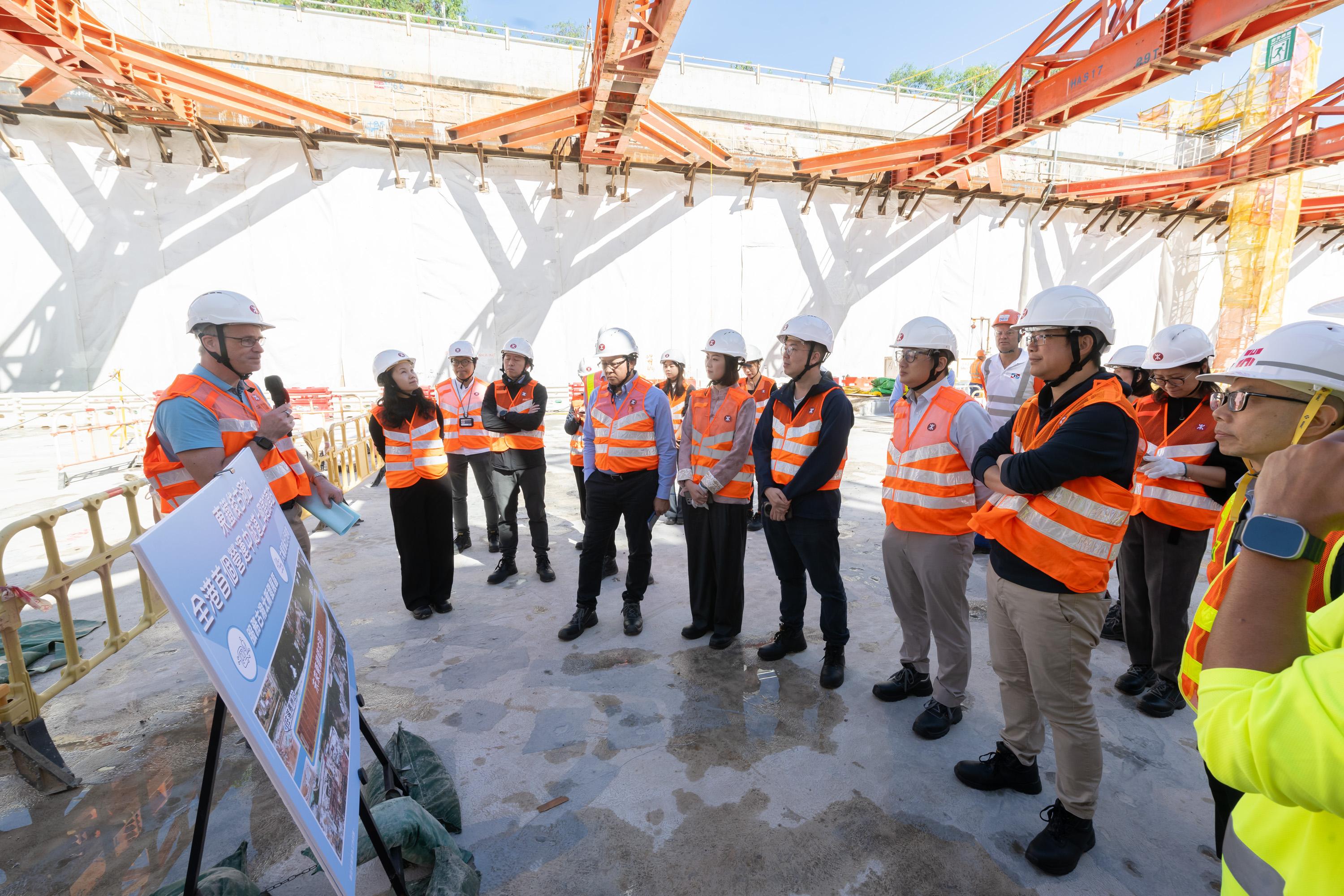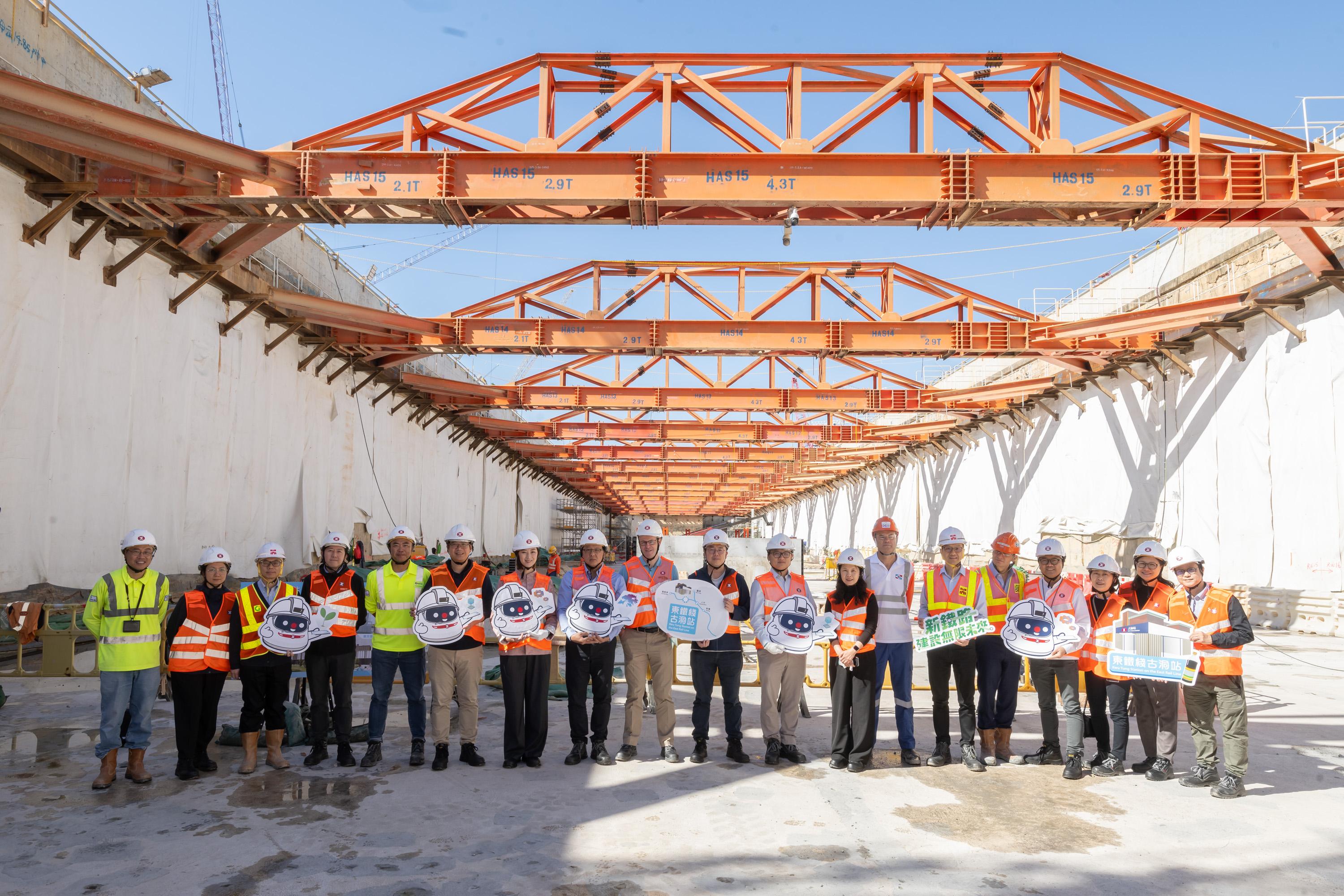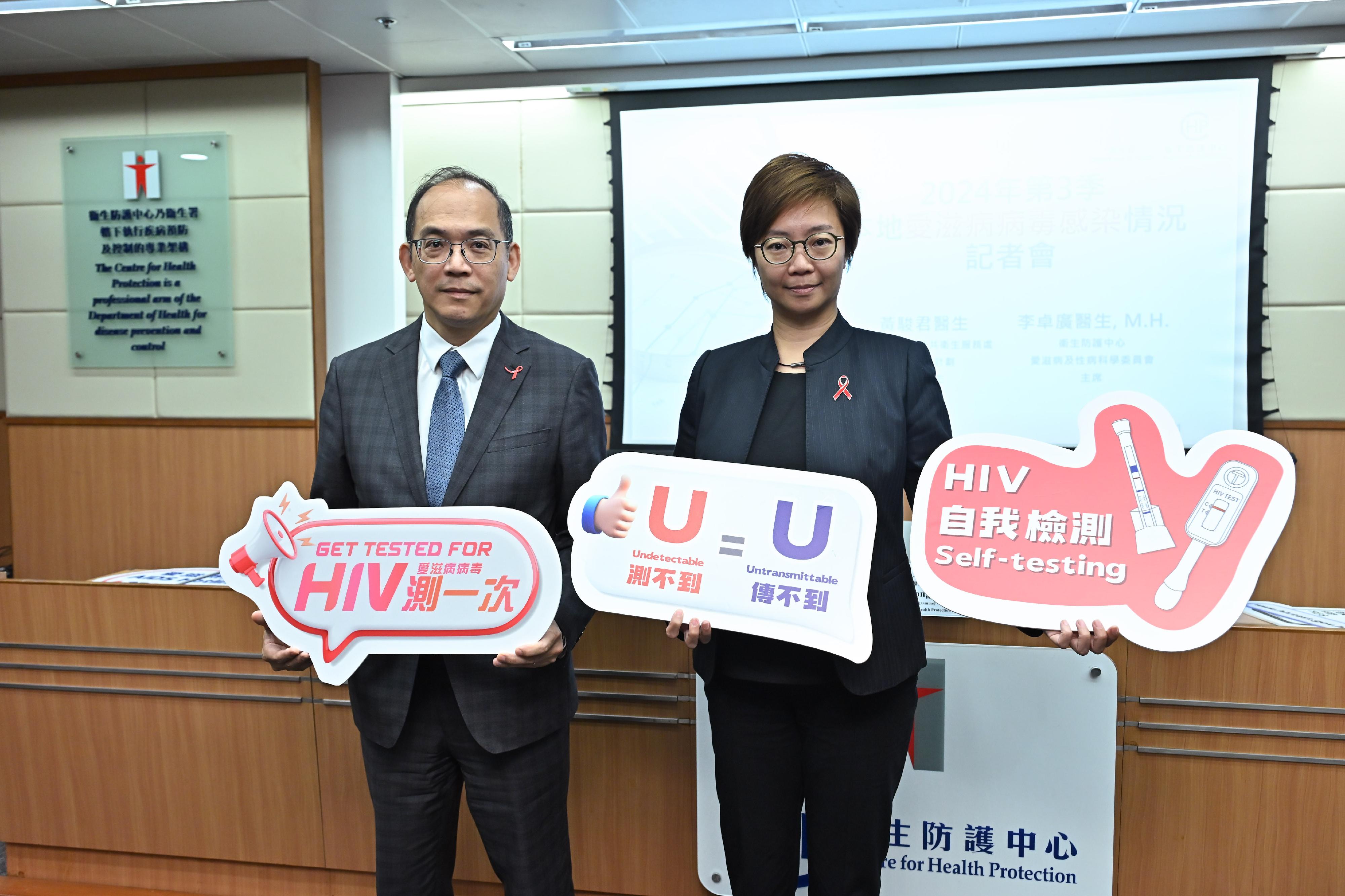STL witnesses signing ceremony of Airport Authority Hong Kong’s equity acquisition of Zhuhai Airport (with photo)
The Secretary for Transport and Logistics, Mr Lam Sai-hung, today (November 26) visited Zhuhai to attend and witness the signing ceremony of the Airport Authority Hong Kong (AAHK)'s equity acquisition of Zhuhai Airport.
The Agreement of Shares Acquisition concerning the equity acquisition of Zhuhai Airport was signed by the Acting Chief Executive Officer of the AAHK, Mrs Vivian Cheung, and the Chairman of the Zhuhai Transportation Holdings Group, Mr Chen Weijia, in Zhuhai. Mr Lam; Deputy Secretary of the Communist Party of China Zhuhai Municipal Committee and the Mayor of the Zhuhai Municipal Government, Mr Huang Zhihao; and the Chairman of the AAHK, Mr Fred Lam, witnessed the signing ceremony.
The Zhuhai Municipal Government and the AAHK have been jointly operating and managing Zhuhai Airport since 2006, driving the continuous growth of passenger traffic and the expansion of the domestic aviation network, which shows that the co-operation between the two parties has achieved remarkable results. The commissioning of the Hong Kong-Zhuhai-Macao Bridge has shortened the travelling distance between Hong Kong and Zhuhai, creating favourable conditions for the two places to further strengthen collaboration in their airports and aviation industries.
With the support of the Central Government, the AAHK and the Zhuhai Municipal Government have been pressing ahead with the AAHK's equity acquisition of Zhuhai Airport according to market principles in the past few years with a view to promoting a deeper co-operation between the two airports. Today's signing ceremony of the Agreement of Shares Acquisition of Zhuhai Airport marks a new milestone for co-operation between two airports, providing a more solid foundation for enhancing passenger and cargo connectivity between the airports.
Mr Lam Sai-hung said, "The National 14th Five-Year Plan and the Outline Development Plan for the Guangdong-Hong Kong-Macao Greater Bay Area have recognised Hong Kong's status as an international aviation hub. The Hong Kong Special Administrative Region (HKSAR) Government has been making continuous efforts in promoting the aviation development on multiple fronts, including fostering closer connections with other cities in the Guangdong-Hong Kong-Macao Greater Bay Area (GBA) to achieve a multiple synergistic effect and proactively contribute to the development of a world-class airport cluster in the GBA. The deepened co-operation between Hong Kong International Airport (HKIA) and Zhuhai Airport today is one of the great examples of strong alliance with complementary advantages.
"The long-awaited Three-Runway System of HKIA is about to come into operation, and the capacity of HKIA will increase significantly. The HKSAR Government will seize the opportunity by increasing our efforts to expand the aviation network and connect the whole nation through establishing an intermodal transport network with other cities in the GBA, leveraging Hong Kong's role as a 'super connector' between the Mainland and the rest of the world. In this regard, we will work with Zhuhai to enhance the 'Fly-Via-Zhuhai-Hong Kong' service, achieving greater synergy by integrating the international aviation network of HKIA and the domestic aviation network of Zhuhai Airport. We will also pursue co-operation in other aspects, including the development of the international air cargo business in collaboration with Zhuhai and taking forward the development of a high-end aviation industrial cluster, with an aim to realise a development plan which is mutually beneficial to the two places," he added.




